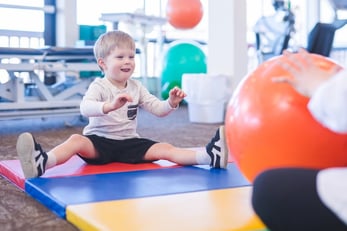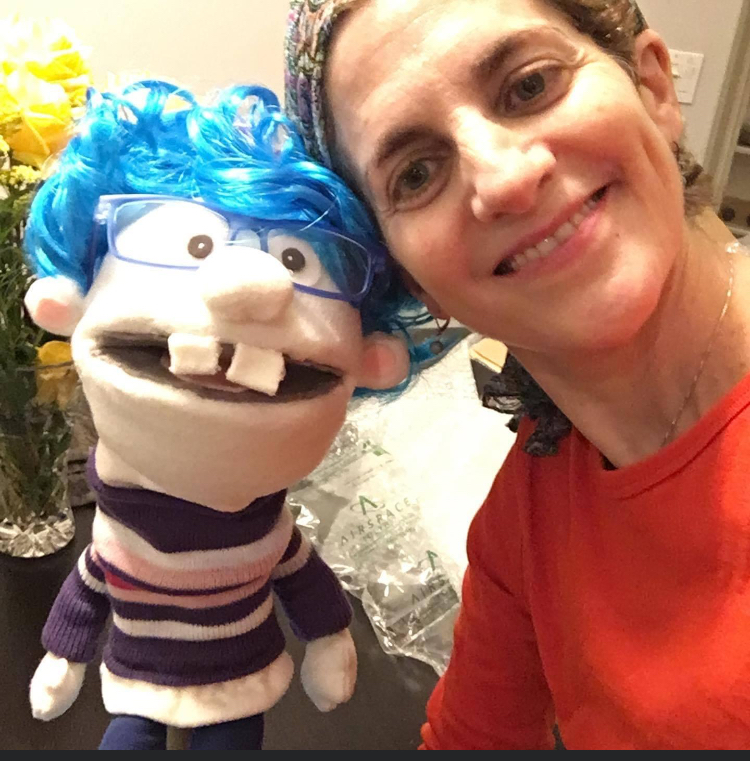Physical Therapy and Autism: Questions and Answers
Autistic children can often benefit from physical therapy. What does working with a physical therapist entail? And how can I work collaboratively with a physical therapist to best help my child?
So many questions! The following article provides some answers about when to seek out physical therapy for your autistic child and what to expect.
How Can Physical Therapy Help My Child?
It is common for autistic children to display motor delays. For example, a child may be delayed in walking, running, or jumping. They may also have difficulty executing those skills smoothly even once they have mastered them. They may prefer not to engage in sports or physical activity that other children their age enjoy. Though some of these avoidances may be social, more than often there is a sensorimotor difference that can be addressed.
 A licensed physical therapist may be a good option for addressing these types of delays through regular therapy and providing you with activities to do with your child when not in therapy. Also, if your physician, teacher, or other professional has suggested that your child may benefit from physical therapy, it may be a good idea to find a qualified pediatric physical therapist.
A licensed physical therapist may be a good option for addressing these types of delays through regular therapy and providing you with activities to do with your child when not in therapy. Also, if your physician, teacher, or other professional has suggested that your child may benefit from physical therapy, it may be a good idea to find a qualified pediatric physical therapist.
Some possible areas that can be addressed with physical therapy, and may be of concern for autistic children, are the following:
- Delay in development (walking, running, jumping, skipping (large movement skills)
- Lags behind using the upper body (swinging a bat, sweeping/pushing/pulling/ steering)
- Difficulty copying movements
- Lacks coordination or balance
- Challenges with planning and repeating movements
- Difficulty doing movements in a specific order
- Clumsy or unstable walking or running
- Difficulty going up or down steps or uneven flooring (grass, hills, etc.)
- Difficulty maintaining or controlling posture
- Poor eye-hand coordination
- Low muscle tone
- Toe walking
- Resistance to participation in physical activity
A pediatric physical therapist can evaluate and then provide regular therapy sessions that are fun and engaging. They can look at areas such as:
- Posture
- Balance
- Motor planning
- Strength
- Range of motion
- Coordination
- Quality of movement
For many children and teens learning new motor skills, or refining the ones they have, can be hard work; but it can also be exciting, empowering, and life-altering. With improved motor skills comes improved overall health, mobility, posture, and even social skills. But, there are a few questions and thoughts you might have about pediatric physical therapy sessions.
Why Does My Child’s Therapy Session Look Like Play?

Your child’s therapy session may look a lot like play or even a playroom. That is because play is how children learn. Your child’s therapist is consistently evaluating how your child moves, how they respond to challenges, and how they are improving. Using toys and games will encourage your child to move. Your child is under constant evaluation and you can ask at any time for an update. At your first session, the therapist will be conducting a thorough evaluation to determine goals and activities for future sessions.
I Have Suggestions for My Therapist
Ask questions! And yes, share your thoughts and ideas. The more conversation, the more everyone will learn. Provide suggestions or ideas if you have any. Be sure to help your therapist understand what you are seeing from your child when not in therapy and any concerns or goals.
My Mother Wants to Buy My Child a Toy. Should I Ask My Child’s Therapist?
This is a great question for your child’s physical therapist! Of course, there are many suggestions when it comes to toy purchases, but your physical therapist can suggest something fun, playful, and that also encourages your child to move, think, and learn. Just ask!
My Child Has Occasional Meltdowns
Your child’s behavior can dictate how beneficial each therapy session may be. This can be a challenge for an autistic child. Though a physical therapist is not a behavior specialist (though most working with children have experience in a variety of behaviors) they will do their best to make the session productive. If your child has a behavioral program that works, be sure to share it. Working together as a team will maximize your child’s progress.
My Therapist Has Given Us Homework
Your child’s physical therapy sessions require a bit of practice at home. Your child's therapist will provide you with a home exercise program and weekly activities. But, if not, ask. This is particularly important if your sessions are only once a week. Think of therapy like piano lessons. If there is no practice time, a therapist will have a harder time progressing your child forward. Be sure to let your child's therapist know what is working and what is not. If you have other family members, you can involve them in activities as well. Are you seeing improvements? Is something not working well? Be sure to share.
My Child Does Not Like Everything He’s Doing
Not only is your child learning from their therapist, but the therapist is learning from your child. The skills gained from every interaction will not only help with future sessions but with other children as well. Your child's therapist may try an activity that does not work well at first but may work well many sessions later. Remember that a physical therapist will push your child to limits that may not be in their comfort zone by making suggestions that maximize the ability to move.

I May Need to Change Therapists
It may take several tries to find the right therapist. If your therapist is not a match and you have given them several sessions to get to know your child, try requesting a different therapist. Keep your child’s interests, well-being, and goals in mind. However, most pediatric therapists have chosen this specialty because they love working with children.
How Long Will My Child Need Physical Therapy?
That depends on the goals that are established, how quickly your child meets those, and funding. If your child has met the established goals or is not showing progress, their therapy sessions may need to be discontinued. There are rules, ethics, and standards that therapists have to abide by. Be sure to work with your therapist and insurance company to get the most out of your benefits.
You Are Your Child’s Team Leader
Therapists treat children as part of a family. We are sensitive to the fact that some families want to be more involved than others. Of course, the more involved, the faster a child may progress. The therapist can cater sessions to your comfort needs. If you shouldn’t be in a therapy session, come in at the end. Ask how the session went and again, what you can do at home or to make therapy most productive.
As you venture forward with physical therapy, we hope you will learn much about helping your child move and function. It is amazing to put the puzzle pieces together and begin to understand the body. You may even learn a bit about yourself. Your local physical therapist would be more than willing to help you out.
If you would like a list of approved physical therapist in your area, you can reach out to your insurance carrier or the American Physical Therapy Association.

Ilana Danneman, PT
Ilana (or “Miss Ilana” as her clients refer to her) is a pediatric physical therapist and the owner of Special Needs in Motion. She works in Atlanta, Georgia and produces a bimonthly special needs podcast for parents, teachers and therapists. Ilana enjoys, writing, walking, biking, working with special needs children and their families and podcasting!




